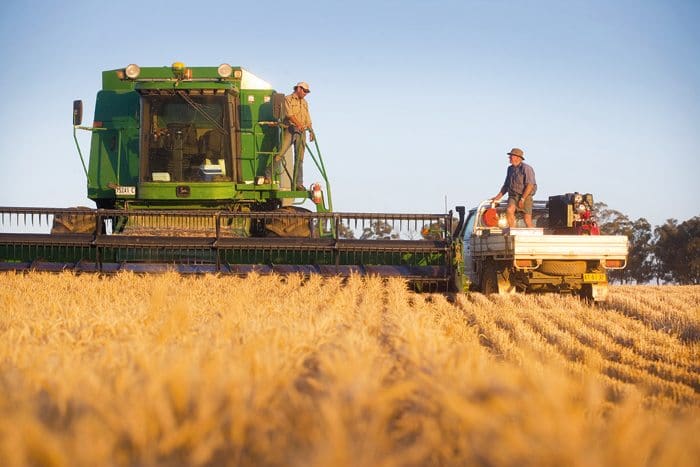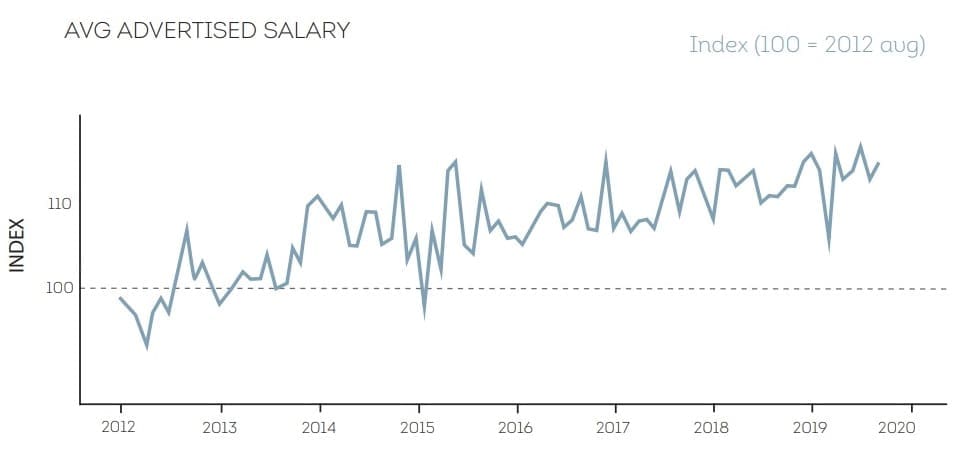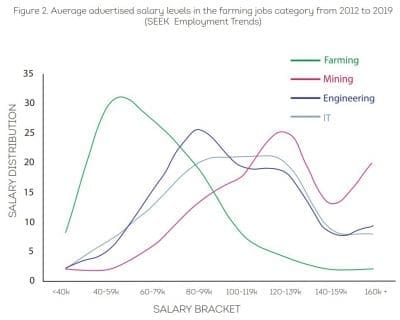Latest listings on Jobs Central
- Accounts Payable + Payroll Officer (2 positions) – Teys, Biloela
- Assistant Station Manager/Head Stockperson, WA – via TransRemote
- Station Hands, Durham Downs – Hancock Agriculture
- Feedlot Operations manager, Opal Creek – Australian Country Choice
- Feedmill Operator, Charlton – Teys
- Human Resources & Compliance Specialist, Vic – Frewstal
- Non-Executive Director: Livecorp – via Rimfire
- Compliance Officer, Condamine Feedlot – Teys
- National Business Manager, Fertiliser/Nutrition – via Rimfire
- Production Manager – via Rimfire
Click here to access these and other exciting jobs currently listed on Jobs Central.

AN ANNUAL survey conducted by recruitment specialists, Agricultural Appointments found average salary growth in the agricultural industry improved over the 20 years between 1995 and 2015.
In recent years however, the rate of increase has slowed, the report shows (see graph 1 below).
The data shows that since the end of 2012, the average advertised salary in SEEK’s farming jobs category has risen by about 16 per cent to the end of 2019, giving an average salary increase of 2pc per annum.
This rate of salary increase is only in keeping with the average annual inflation of around 2pc. This indicates that salaries have not actually increased over the last decade in real terms.
However, this trend is very similar to all category sectors across Australia over the last decade, where salary growth has been negative or static. Australian workers’ wages have continued to stagnate below long-term growth rates and, if anything, have showed signs of further weakness, with average pay packets rising just 2.2pc over the year to the end of 2019.
Indeed, wage growth in Australia continues to be fixed well below the long-term average of 3.2pc, a level not seen since late in 2012.

Figure 1. Average advertised salary levels in the farming jobs category from 2012 to 2019 (SEEK Employment Trends)

Figure 2: Salary distribution in Farming, Mining, Engineering and IT categories in the 12 months ending November 2019 (SEEK Employment Trends)
When compared with other industries, agriculture lags behind other sectors according to a recent salary distribution report from Seek (SEEK Employment Trends – July-Sept 19 vs July-Sept 18).
It is clear from these salary distribution charts from Seek that the farming jobs category is skewed heavily towards the lower end of the salary ladder, with 65pc of all jobs being in the three lowest salary levels ($40,000 to 79,000), as opposed to information technology, with only 22pc of jobs within these lowest salary levels, and mining with just 10pc.
Conclusion
The agriculture and farming sector is set to grow immensely in the next ten to twenty years. As well, more exciting job opportunities in agriculture will be available, fuelled by population growth and the subsequent higher demand for food supplies, an ageing agricultural workforce, and the introduction of new food technologies.
Before all of this happens, significant improvements in remuneration in the agriculture and farming sector will need to take place to attract talent. Although agricultural industries are not alone in experiencing little to no real salary growth over the last eight years, the latest salary data from Seek shows that salaries in the agriculture and farming sector are skewed towards the lower levels when compared across other key employment categories, such as mining, information technology and banking.
If this trend continues, then remuneration problems will be a major detrimental factor in the ability of the Australian agricultural sector to attract the skilled talent required to drive future growth.
Source: Agricultural Appointments. Click here to download the 2020 Agricultural Appointments Trends and Salary report.



HAVE YOUR SAY